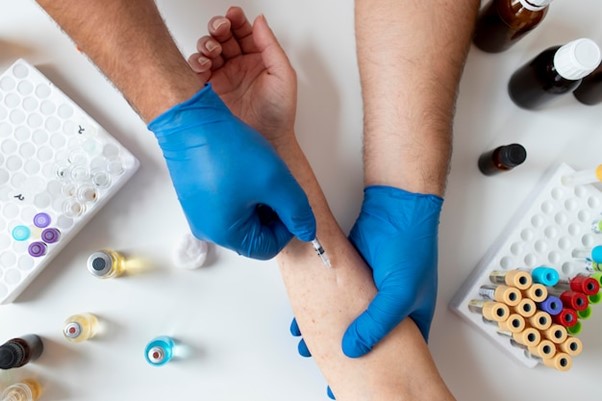Dengue fever is a common viral infection spread through mosquito bites, particularly the Aedes aegypti mosquito. Dengue fever is widespread in tropical and subtropical areas and typically manifests with a sudden high fever, intense headache, pain behind the eyes, joint and muscle aches, and a distinctive rash. While the illness may be mild for some individuals, it can cause severe complications in others. While dengue can be mild for some, it can lead to serious complications, including dengue haemorrhagic fever and dengue shock syndrome. That’s why early detection is crucial to ensure proper care and treatment.
Why Testing for Dengue Fever is Essential?
If you suspect you or a loved one might have dengue fever, getting tested as soon as possible is key. Early detection not only helps in confirming the diagnosis but also aids doctors in differentiating dengue from other illnesses with similar symptoms, like malaria or viral infections. Timely testing enables effective monitoring and prompt medical care, helping to minimize the chances of severe complications.
Dengue fever is diagnosed through specific blood tests that detect the virus or the body’s immune response to the infection. The two most common types of tests are:
NS1 Antigen Test: This test detects the presence of the dengue virus in the bloodstream. It is most effective when done within the first 1-5 days of the fever’s onset.
Dengue IgM and IgG Antibody Tests: These tests identify the antibodies your body generates as a reaction to the dengue virus. The IgM antibodies appear during the acute phase of infection, while IgG antibodies show up later, indicating past infection or immunity.
Both tests are highly effective in diagnosing dengue, and your healthcare provider may recommend one or both depending on the timing and severity of the symptoms.
The Importance of Early Diagnosis and Monitoring
A key aspect of managing dengue fever is closely monitoring the patient’s health during the course of the illness. The first few days of the fever are critical, as this is when complications like dehydration or bleeding can develop. Testing not only confirms the diagnosis but also helps in tracking the progression of the illness, enabling timely interventions to prevent severe outcomes.
- Doctors rely on diagnostic tests to understand the severity of the infection and identify the appropriate treatment options. In some cases, hospitalized care may be necessary to ensure proper fluid management and close monitoring.
Get Tested at Dr. Baviskar Pathology Lab
At Dr. Baviskar Pathology Lab, we provide accurate and reliable dengue fever tests, including the NS1 antigen and antibody tests. Our advanced lab ensures rapid results, allowing for quick treatment. Our expert team is committed to offering the best care throughout the testing process. If you or someone you know is showing symptoms of dengue, don’t wait—get tested today for early detection and effective treatment. Reach out to Dr. Baviskar Pathology Lab and take the first step toward better health.


